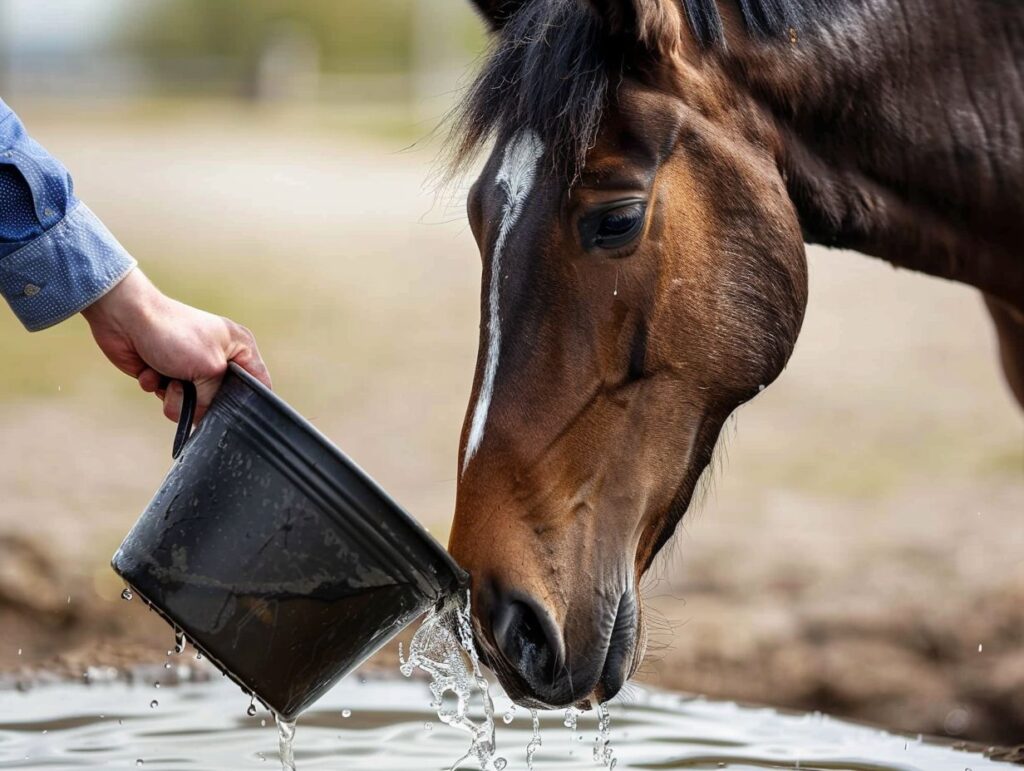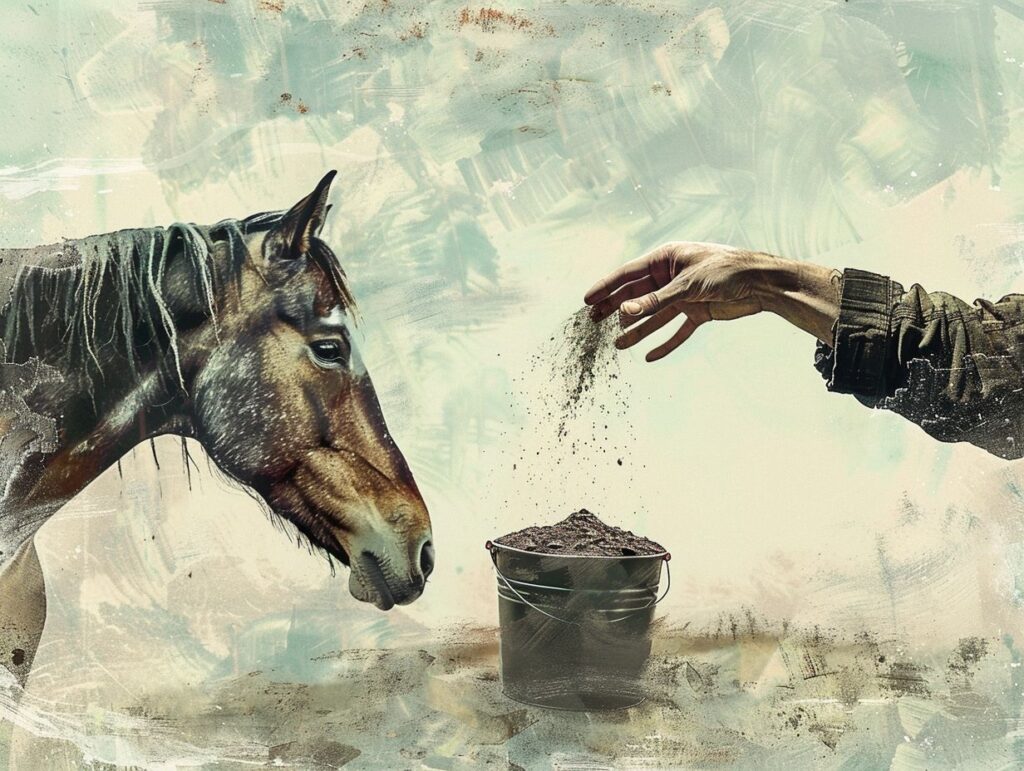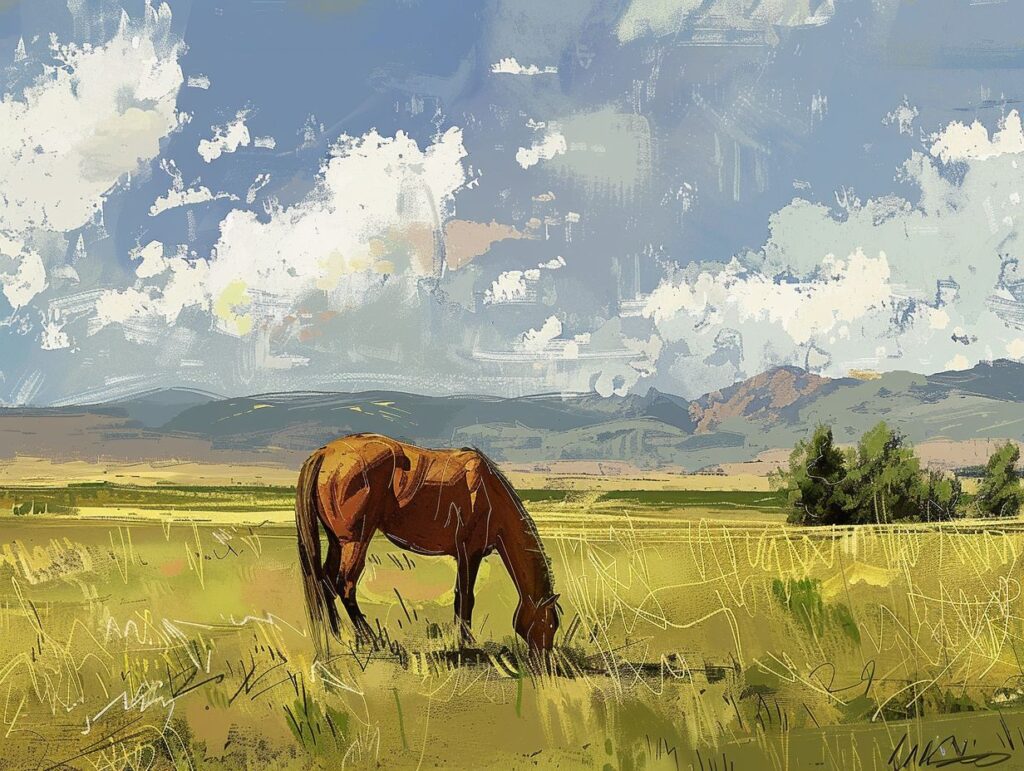Dehydration in horses can pose a significant concern, affecting their well-being and performance. This discussion will delve into the causes and symptoms of dehydration in horses and provide guidance on its identification.
Additionally, effective rehydration techniques and strategies will be outlined, along with best practices to prevent dehydration. Recognizing the critical role of proper hydration in horses is essential for their overall health.
Continue reading to gain insight into maintaining your horse’s health and hydration.
Understanding Dehydration in Horses
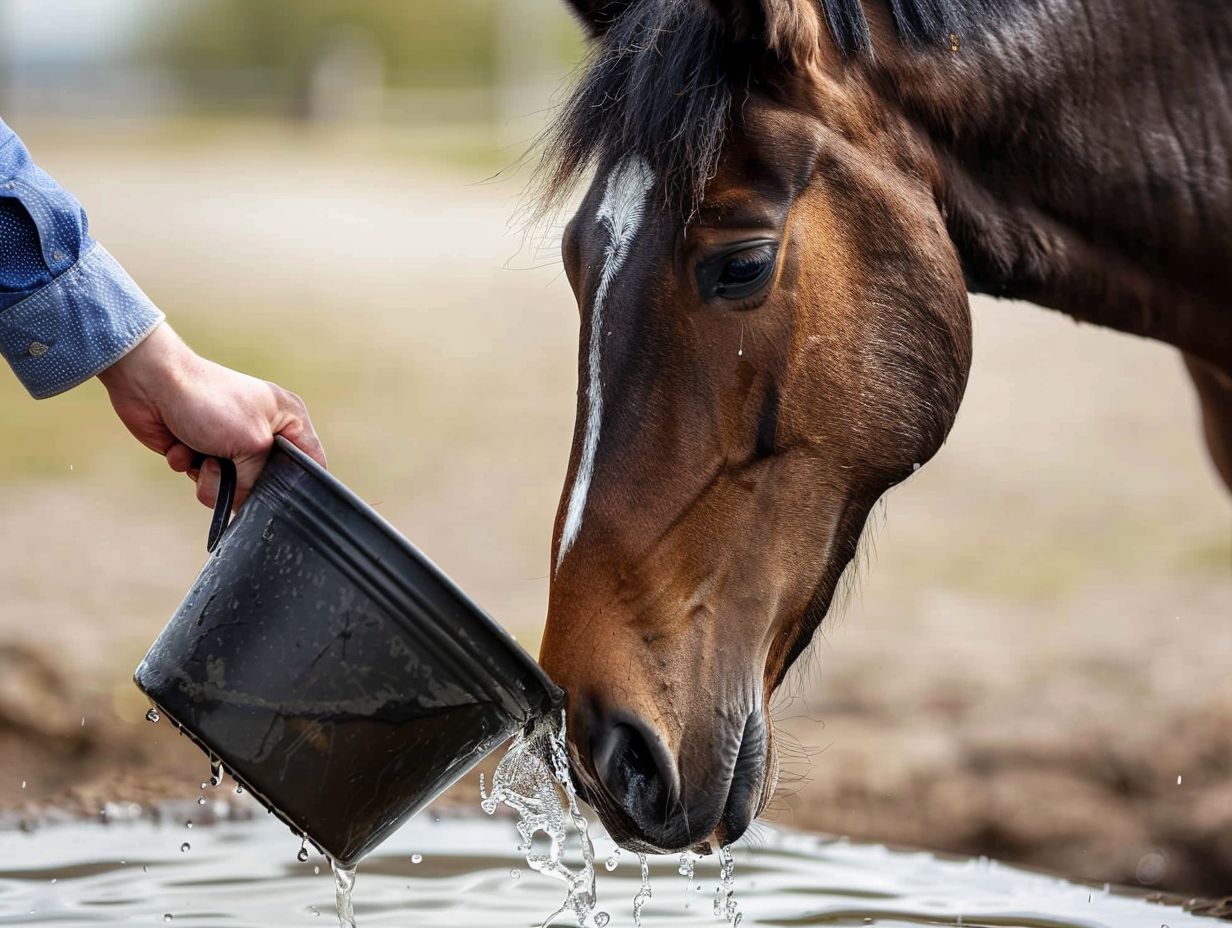
Understanding Dehydration in Horses is essential for maintaining the health and well-being of your equine companion. Horses, like all animals, require adequate hydration to function optimally.
Causes and Symptoms
Dehydration in horses can occur due to a variety of factors, such as environmental conditions, insufficient fluid intake, or excessive sweating. Signs indicating dehydration in horses include sunken eyes, lethargy, reduced skin elasticity, and dry mucous membranes. Additionally, decreased performance, dark or diminished urine output, and an elevated heart rate may also indicate that the horse is dehydrated. It is essential for horse owners to be vigilant in monitoring their equines for these dehydration symptoms, particularly in hot weather or during strenuous physical activity.
To prevent dehydration in horses, it is important to implement proper hydration practices. This includes ensuring access to fresh water at all times, providing electrolyte supplements when necessary, and adjusting feeding ratios accordingly. Failure to prioritize hydration measures can result in serious health complications for horses, such as colic, heat stroke, and potential organ damage.
Identifying Dehydration in Horses
Recognizing dehydration in your horses promptly is crucial to prevent potential health complications and safeguard the well-being of your horse.
Signs to Look Out For
It is essential for you to remain vigilant for specific signs that may indicate dehydration in horses, such as changes in hydration levels or reduced fluid intake.
Monitoring hydration levels is crucial for ensuring the overall health and well-being of your equine companion. Providing access to fresh, clean water at all times is vital to prevent dehydration. Additionally, offering electrolyte supplements during hot weather or after strenuous exercise can aid in replenishing lost fluids and minerals. Another effective strategy is wetting the horse’s feed or adding water to their meals to boost water consumption.
Regularly checking for signs of dehydration, such as sunken eyes or tacky gums, can enable you to intervene early and maintain optimal hydration levels for your horse.
Treating Dehydration in Horses
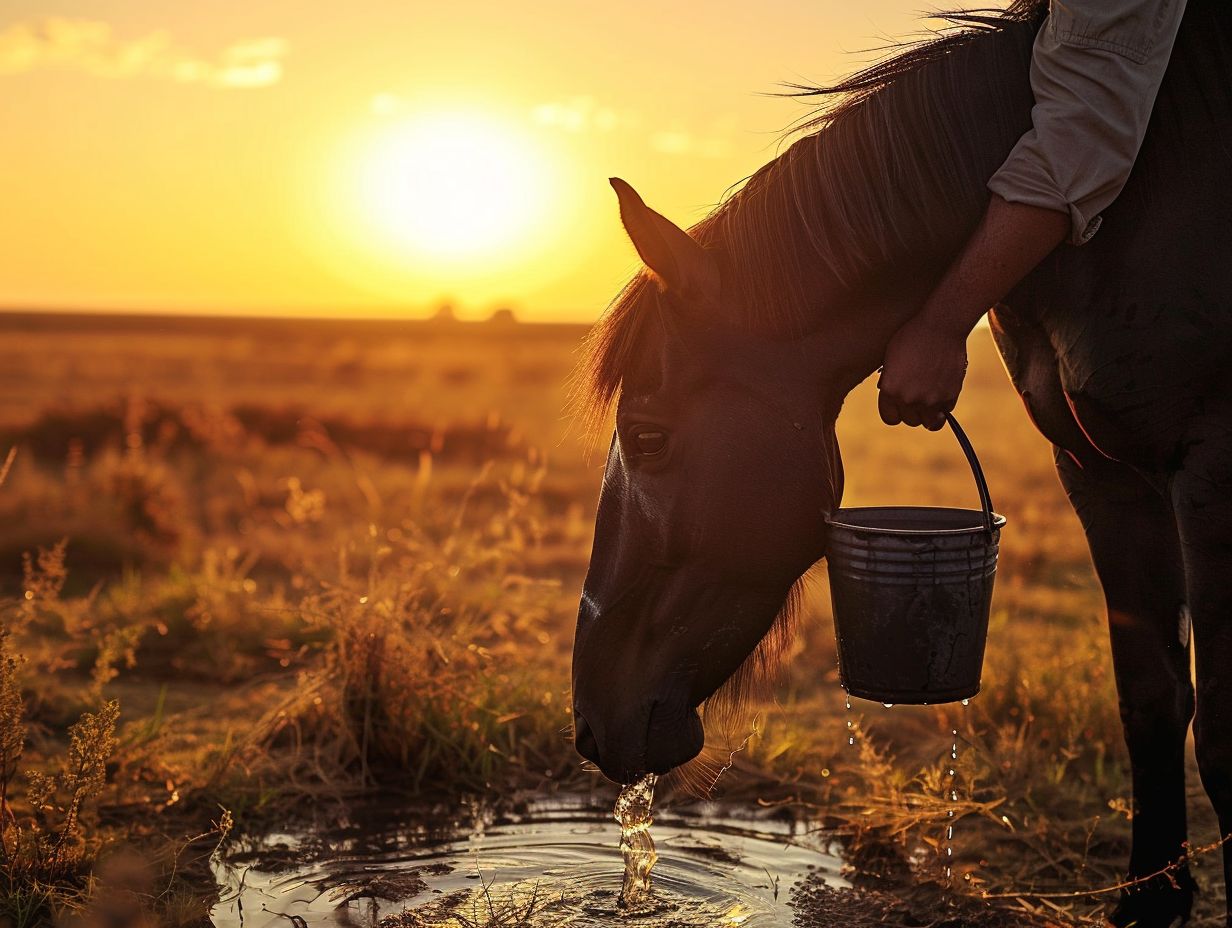
Addressing dehydration in horses necessitates immediate action and employing suitable rehydration methods to reestablish fluid equilibrium and aid in the recuperation of the equine.
Rehydration Techniques and Strategies
Implementing effective rehydration techniques and strategies is essential for restoring the hydration balance in dehydrated horses.
Maintaining a structured hydration schedule is crucial for preventing dehydration in horses. Depending on factors such as temperature, exercise intensity, and individual needs, horses should ideally consume 5-10 gallons of water per day.
To ensure adequate hydration, monitoring water intake daily is key. Implementing hydration strategies such as offering electrolyte-enhanced water or wetting feed can encourage increased water consumption.
After a period of dehydration, the rehydration process should be gradual to prevent further issues. This involves starting with small, frequent water access and closely monitoring electrolyte levels.
Preventing Dehydration in Horses
Preventing dehydration in horses requires a proactive approach that involves implementing proper hydration practices and effective management strategies.
Proper Hydration Practices for Horses
Implementing proper hydration practices for horses is crucial in maintaining their overall health and well-being.
Ensuring that horses have access to clean and fresh drinking water at all times is essential for preventing dehydration. Developing a solid hydration strategy involves not only providing ample water but also considering factors such as temperature, humidity, and exercise level. The hydration process in horses is similar to that in humans, where water is absorbed in the digestive system and transported throughout the body to maintain bodily functions. Monitoring hydration levels through observing urine color, skin elasticity, and overall behavior can help owners and caretakers ensure that their horses are adequately hydrated.
Importance of Proper Hydration for Horses
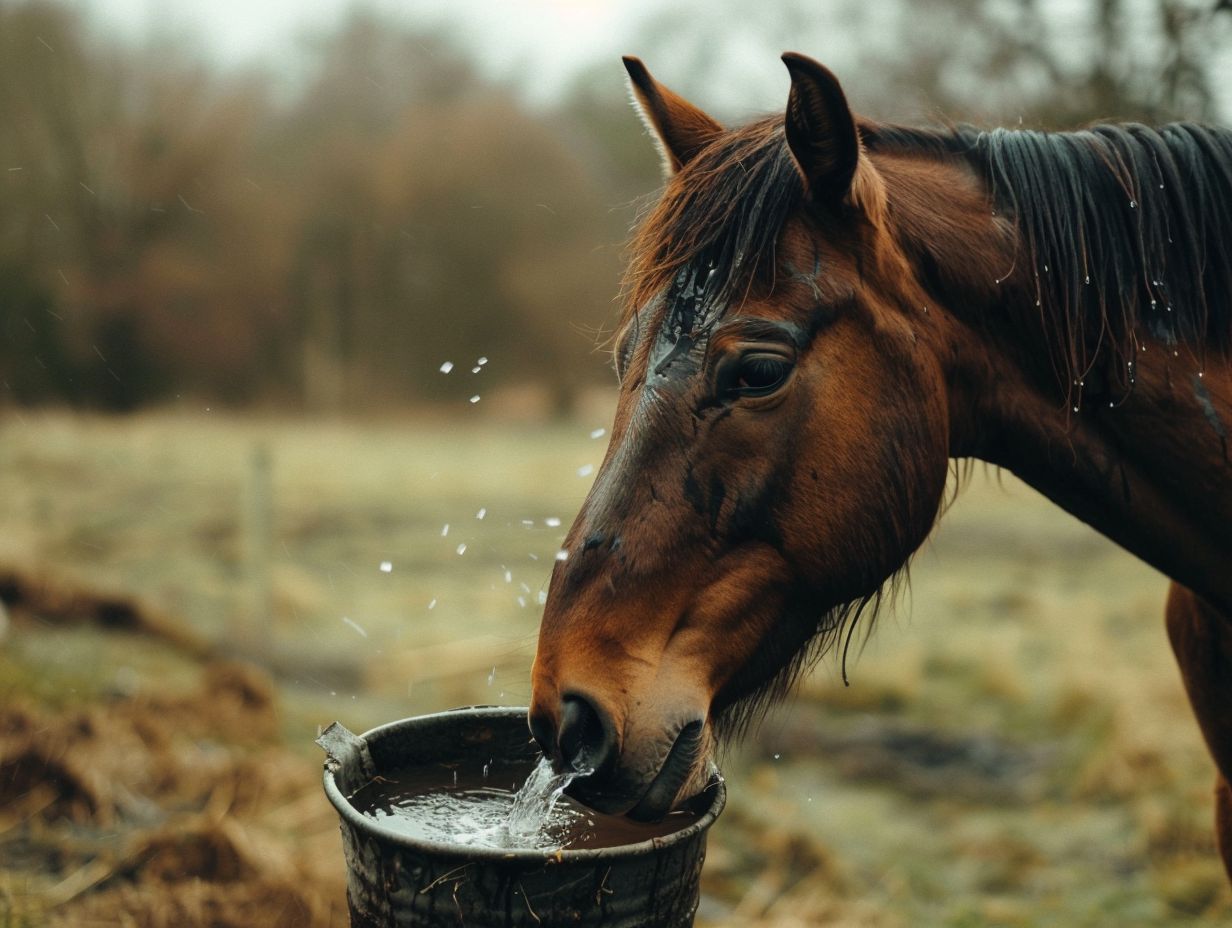
Understanding the significance of adequate hydration for horses is essential for fostering equine health, performance, and overall well-being.
Impact on Performance and Health
Proper hydration in horses has a direct impact on your horse’s performance levels, overall health, and adherence to a structured hydration protocol.
Maintaining a consistent hydration schedule is vital for ensuring that your equine friend remains healthy and performs at their best. Dehydration can lead to serious health issues in horses, such as colic and heat stress, emphasizing the importance of monitoring hydration levels closely. By implementing a hydration protocol that includes regular water intake, electrolyte balance, and monitoring of water intake during exercise, horse owners can help optimize their horse’s performance and well-being.
Frequently Asked Questions
What are the signs that my horse is dehydrated?
Some common signs of dehydration in horses include dry, tacky gums, sunken eyes, lethargy, and decreased skin elasticity.
How can I prevent my horse from becoming dehydrated?
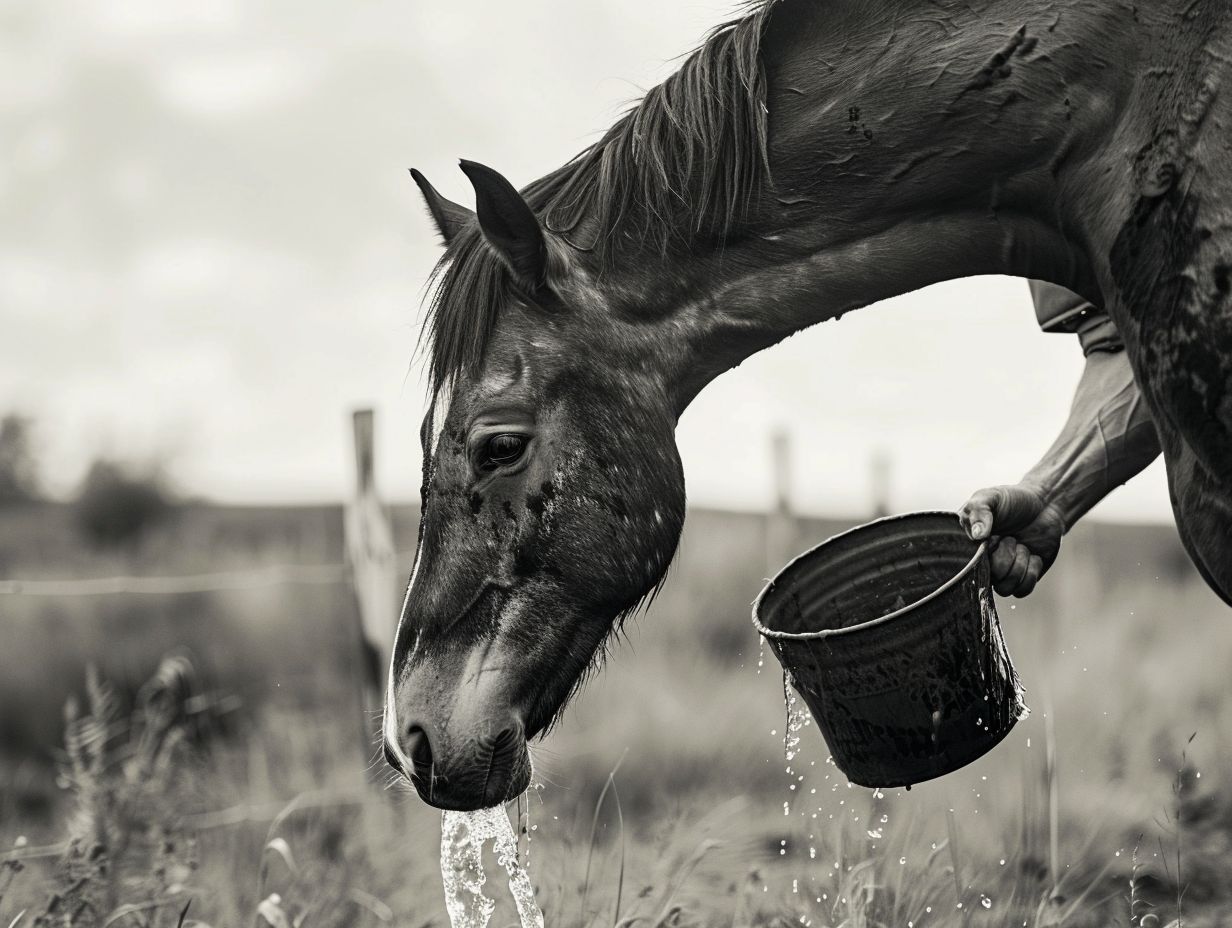
Make sure your horse always has access to fresh, clean water and provide electrolyte supplements when necessary. Monitor their water intake and try to keep them in a shaded area during hot weather.
What should I do if I suspect my horse is dehydrated?
First, offer them clean water and see if they will drink. If not, try offering them water with some electrolytes mixed in. If they still refuse to drink, contact your veterinarian for further guidance.
Can I use a hose to hydrate my horse?
It is not recommended to use a hose to hydrate a dehydrated horse. This can cause them to ingest too much water too quickly, leading to potential health issues. It is best to let them drink at their own pace.
How long does it take to rehydrate a dehydrated horse?
The time it takes to rehydrate a horse depends on the severity of their dehydration. In mild cases, it may only take a few hours, while more severe cases may require days of consistent hydration and electrolyte supplementation.
What are some ways to encourage a horse to drink when they are dehydrated?
You can try adding some electrolytes to their water, offering them wet hay or soaked feed, or adding some apple juice to their water. You can also try hand-grazing them on fresh grass, as the moisture content can help hydrate them.
